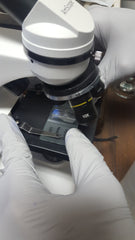Happy Birthday, Louis Pasteur!
Louis Pasteur: A Brief Overview: Born on December 27, 1822, in Dole, France, Louis Pasteur grew up to become a chemist and microbiologist whose discoveries reshaped scientific understanding. Initially trained as a chemist, Pasteur later turned his attention to microbiology, where he made lasting contributions.
The Role of Microorganisms in Fermentation: Before Pasteur, the process of fermentation was shrouded in mystery. It was known that certain transformations occurred during the brewing of beer and wine, but the mechanisms behind these changes remained unclear. Pasteur's pioneering work in the mid-19th century shed light on the role of microorganisms in fermentation.
Pasteur's Experiments and Discoveries: Pasteur conducted meticulous experiments that demonstrated the involvement of microorganisms, specifically yeast, in the fermentation process. He showed that yeast is responsible for converting sugars into alcohol and carbon dioxide. This groundbreaking revelation revolutionized the understanding of fermentation and its applications in brewing.
Pasteurization and Its Impact on Beer and Wine Production: Pasteur's investigations into fermentation led to another crucial development: pasteurization. Recognizing that microorganisms were responsible for spoilage, Pasteur developed a process of heating beverages to a specific temperature to kill harmful bacteria without significantly altering the taste. This technique, known as pasteurization, proved to be a game-changer in the brewing industry. It allowed for the production of more stable and longer-lasting beer and wine, ensuring a safer and higher-quality end product.
Preventing Spoilage in Beer and Wine: By understanding the role of microorganisms in fermentation and spoilage, Pasteur provided brewers and winemakers with valuable insights. His work laid the foundation for hygiene practices in brewing, emphasizing the importance of cleanliness to prevent contamination and spoilage. Brewers began adopting pasteurization and sanitation measures, leading to improved product consistency and reduced economic losses.
Legacy and Ongoing Impact: Louis Pasteur's contributions to the understanding of fermentation and the development of pasteurization had a profound and lasting impact on the brewing industry. His legacy endures in modern brewing practices, where quality control and hygiene are paramount. Pasteurization remains a standard process in the production of many beverages, ensuring the safety and longevity of the final products.
Conclusion: Louis Pasteur's groundbreaking work in the realm of fermentation revolutionized the brewing industry, transforming it from a mysterious craft to a scientifically grounded and controlled process. His discoveries not only elucidated the role of microorganisms in fermentation but also introduced practices like pasteurization that continue to shape the production of beer and wine today. Pasteur's enduring legacy in microbiology and his contributions to brewing science highlight the profound impact that one individual can have on an entire industry, leaving an indelible mark on the way we understand and produce some of our most beloved beverages.
- Theodore Clevenger


Comments 0